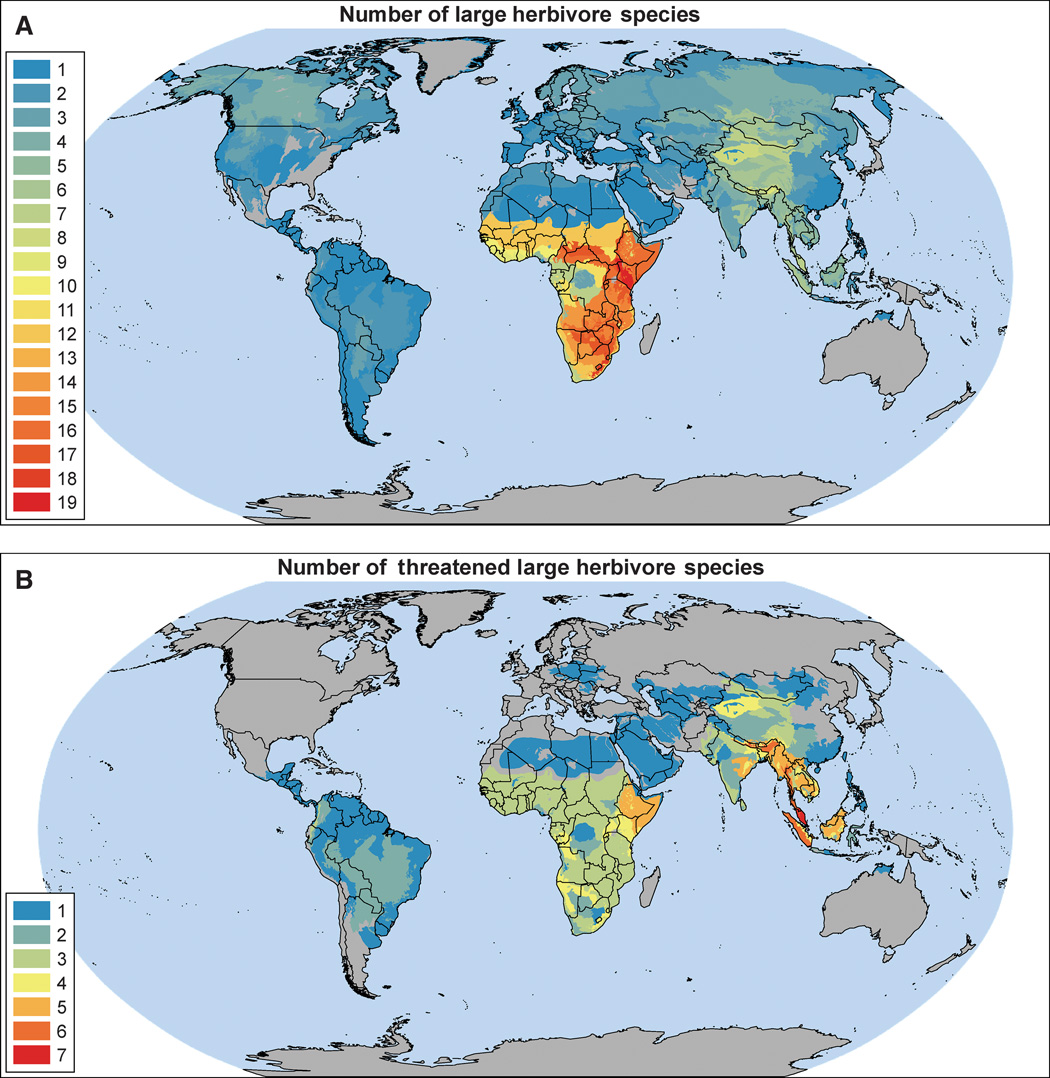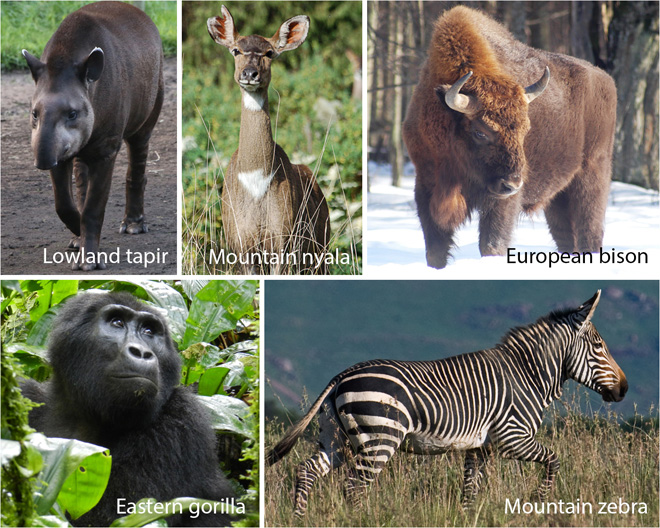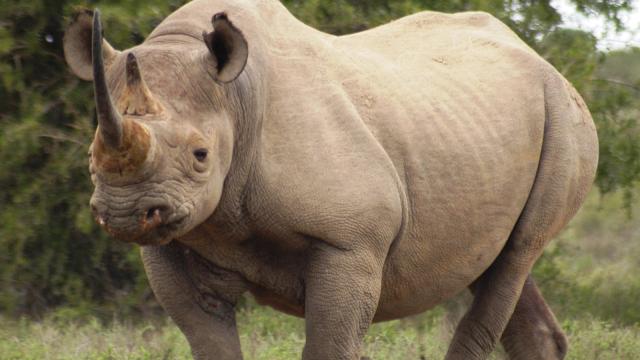It’s happening across the world, from grasslands to savannas to forest to deserts. Earth’s wild ecosystems are emptying out and falling silent.
Large herbivores — rhinos, zebras, camels, elephants, tapirs, hippos — are some of our planet’s most iconic creatures. They’re also among the fastest disappearing animals on Earth, according to a report published Friday in Science Advances. The disappearance of large herbivores threatens to unravel the very fabric of the landscapes they trod, raising the specter of a future where Earth’s forests are vacant and the only sound to be heard on the African savannah is the howl of wind through abandoned fields.
Surprise: It’s our fault. Specifically, the decline of large herbivores is due to a combination of excessive hunting and destruction of habitat.
In the new study, wildlife biologist William Ripple and colleagues conducted a meta-analysis of data on 74 of the world’s largest herbivore species — those weighing over 100 kilograms, or 220 pounds, on average — looking at endangerment status, key threats, and the ecological consequences of severe population decline. The study’s conclusion? Large herbivores worldwide are facing steep population declines and range contractions, such that roughly 60% are now threatened with extinction.
“Without radical intervention, large herbivores (and many smaller ones) will continue to disappear from numerous regions with enormous ecological, social, and economic costs,” the authors write.

Large herbivore total species richness (A) and threatened (B) at the ecoregion level. Ecoregion lists for each species were obtained using the IUCN Red List species range maps. Ripple et al. 2015.
The majority of threatened large herbivores live in developing countries in Southeast Asia, India, and Africa. (Most of Europe and North America’s large herbivores were extirpated in ancient times.) Threats to extant herbivores include competition for space with livestock production — which has tripled since 1980 — and hunting. Roughly 1 billion people across the world subsist on wild meat, and as the human population grows, so does the pressure we place on wild animals.
The other side to the hunting story is coveted wild animal products — the market for rhino horns in Asia is growing alarmingly fast, and the global demand for elephant ivory remains strong worldwide, even after decades of strict international regulations.

A few of the large herbivore species now threatened with extinction. Ripple et al. 2015.
The loss of large herbivores, the authors find, could have ripple effects throughout ecosystems, by diminishing the many services these creatures provide. Possible effects include reduced seed dispersal, more frequent and intense wildfires, a weaker nutrient cycle between plants and soil, and changes in habitat for smaller animals. Not to mention that a decline in prey is adding additional stress to Earth’s large carnivore populations, which are also disappearing globally. Through direct and indirect effects, the loss of large herbivores could eventually result in “empty landscapes” worldwide.
“We hope this report increases appreciation for the importance of large herbivores in these ecosystems,” said Ripple. “And we hope that policymakers take action to conserve these species.”
Yea, I hope so too.
You can read the full open-access report at Science Advances.
Follow Maddie on Twitter or contact her at maddie.stone@gizmodo.com
